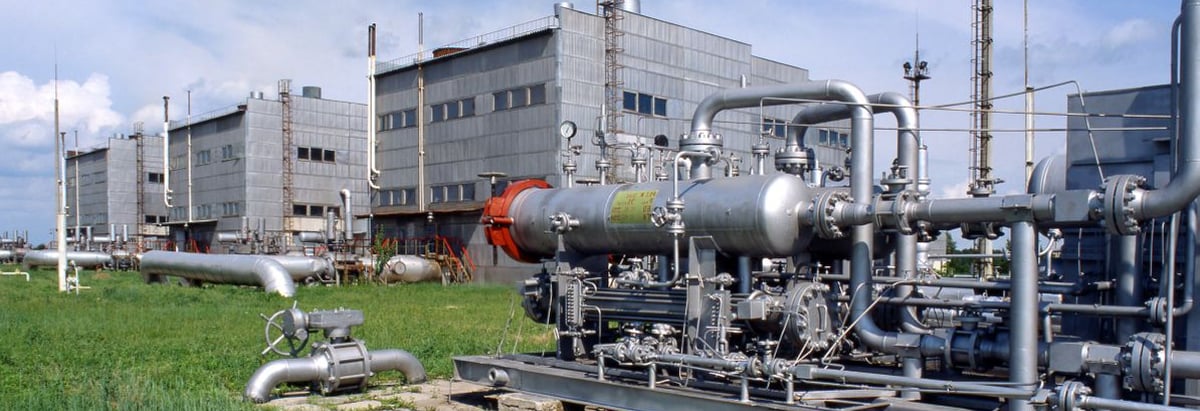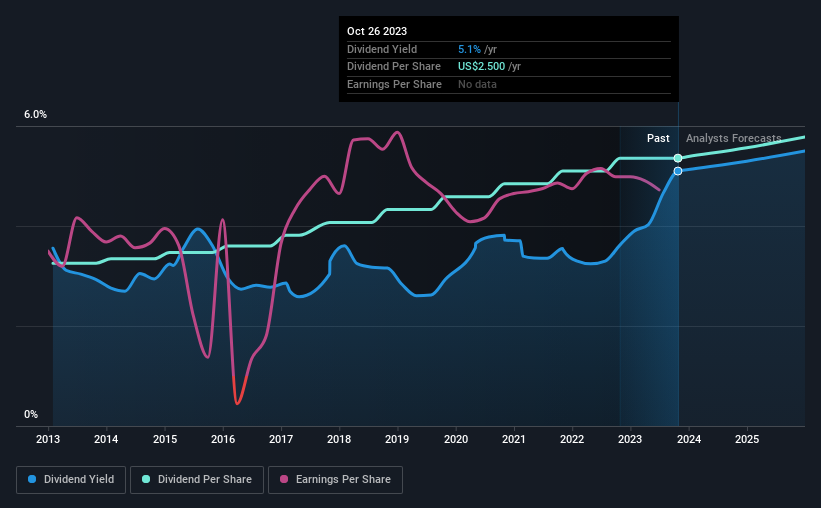
The board of Black Hills Corporation (NYSE:BKH) has announced that it will pay a dividend on the 1st of December, with investors receiving $0.625 per share. The dividend yield will be 5.1% based on this payment which is still above the industry average.
See our latest analysis for Black Hills
Black Hills' Earnings Easily Cover The Distributions
Impressive dividend yields are good, but this doesn't matter much if the payments can't be sustained. Prior to this announcement, Black Hills' dividend was only 66% of earnings, however it was paying out 96% of free cash flows. While the company may be more focused on returning cash to shareholders than growing the business at this time, we think that a cash payout ratio this high might expose the dividend to being cut if the business ran into some challenges.
The next year is set to see EPS grow by 14.5%. Assuming the dividend continues along recent trends, we think the payout ratio could be 63% by next year, which is in a pretty sustainable range.

Black Hills Has A Solid Track Record
The company has a sustained record of paying dividends with very little fluctuation. Since 2013, the annual payment back then was $1.52, compared to the most recent full-year payment of $2.50. This implies that the company grew its distributions at a yearly rate of about 5.1% over that duration. The growth of the dividend has been pretty reliable, so we think this can offer investors some nice additional income in their portfolio.
Dividend Growth May Be Hard To Come By
The company's investors will be pleased to have been receiving dividend income for some time. However, things aren't all that rosy. Black Hills has seen earnings per share falling at 5.1% per year over the last five years. A modest decline in earnings isn't great, and it makes it quite unlikely that the dividend will grow in the future unless that trend can be reversed. It's not all bad news though, as the earnings are predicted to rise over the next 12 months - we would just be a bit cautious until this can turn into a longer term trend.
In Summary
In summary, while it's good to see that the dividend hasn't been cut, we are a bit cautious about Black Hills' payments, as there could be some issues with sustaining them into the future. While Black Hills is earning enough to cover the payments, the cash flows are lacking. Overall, we don't think this company has the makings of a good income stock.
It's important to note that companies having a consistent dividend policy will generate greater investor confidence than those having an erratic one. At the same time, there are other factors our readers should be conscious of before pouring capital into a stock. To that end, Black Hills has 3 warning signs (and 1 which is a bit unpleasant) we think you should know about. Is Black Hills not quite the opportunity you were looking for? Why not check out our selection of top dividend stocks.
Valuation is complex, but we're here to simplify it.
Discover if Black Hills might be undervalued or overvalued with our detailed analysis, featuring fair value estimates, potential risks, dividends, insider trades, and its financial condition.
Access Free AnalysisHave feedback on this article? Concerned about the content? Get in touch with us directly. Alternatively, email editorial-team (at) simplywallst.com.
This article by Simply Wall St is general in nature. We provide commentary based on historical data and analyst forecasts only using an unbiased methodology and our articles are not intended to be financial advice. It does not constitute a recommendation to buy or sell any stock, and does not take account of your objectives, or your financial situation. We aim to bring you long-term focused analysis driven by fundamental data. Note that our analysis may not factor in the latest price-sensitive company announcements or qualitative material. Simply Wall St has no position in any stocks mentioned.
About NYSE:BKH
Black Hills
Through its subsidiaries, operates as an electric and natural gas utility company in the United States.
Established dividend payer and fair value.
Similar Companies
Market Insights
Community Narratives


